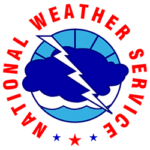Overview
Summer can be a fun time with vacations, picnics and other enjoyable activities, but the hot weather poses many potential health risks such as heat exhaustion or heat stroke.
Cooling Assistance Programs
The Central Ohio Breathing Association
The Summer Crisis Program (SCP) is for electric utility assistance only and assists households with payments for utility bills to provide households with relief from the heat. Go to The Central Ohio Breathing Association’s website for more information.
LifeCare Alliance
Free fan program for households with immediate family members with chronic health conditions. New box fans also can be donated for the program by dropping off fans at any City of Columbus fire station or LifeCare Alliance’s meal distribution facility at 670 Harmon Ave. Fans can be donated through LifeCare Alliance’s Amazon Wish List, in which donors can order fans and have them delivered directly to LifeCare Alliance.
Impact Community Action
The Home Energy Assistance Summer Crisis Program provides a one-time benefit to eligible Ohioans with cooling assistance during the summer months. The program runs from July 1 to August 30. Find more information here.
Franklin County Senior Options
Free fan program for current clients ages 60 years or older without a working air conditioner. Limited number of fans available. Clients who received a fan in the last two years are ineligible. For more information, call (614) 525-6200 or visit officeonaging.org/boxfan.
Each year in the United States, an average of about 700 people die from heat-related causes, 9,200 people are hospitalized due to heat, and emergency departments receive nearly 68,000 heat-related visits.
Among conditions associated with hot weather are cardiovascular and respiratory complications, renal failure, electrolyte imbalance, kidney stones, negative impacts on fetal health, and preterm birth. Deaths result from heat stroke and related conditions, cardiovascular disease, respiratory disease, and cerebrovascular disease.
Safety Tips:
- General Tips
- Additional Information
- Tips for Workers and those who must be outdoors
- OSHA Quick Card for Workers
- Food Safety during Power Outages: When to Save It and When to Throw It Out
- Food Safety during Power Outages (CDC)
The CDC’s Heat & Health Tracker can be used to explore county-level heat wave forecasts and track weekly cases of heat-related illness across the country.
Watch for Air Quality Alerts during the summer. These will be displayed on highway signs and by MORPC, who monitors the air quality index. An Air Quality Alert will likely be issued on hot and humid days. These alerts mean that the pollution in the air make it more difficult for older adults, young children and those who suffer from heart disease and respiratory problems such as asthma, bronchitis and emphysema to breathe.
Read more information on Air Quality and Air Quality Alerts.
Warning Signs and Symptoms of Heat-Related Illness
Illnesses associated with heat include:
- Heat stroke
- Heat exhaustion
- Heat cramps
- Sunburn
- Heat Rash
Symptoms include:
- Dizziness
- Nausea
- Rapid heartbeat
- Headache
- Absence of perspiration
The Centers for Disease Control and Prevention (CDC) has a complete list of warning signs and what to do for heat-related illnesses.
Read more information on heat safety for the most current up-to-date information from the CDC.



